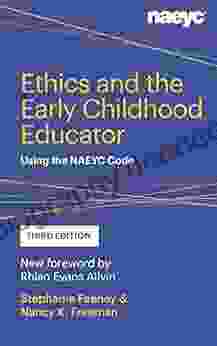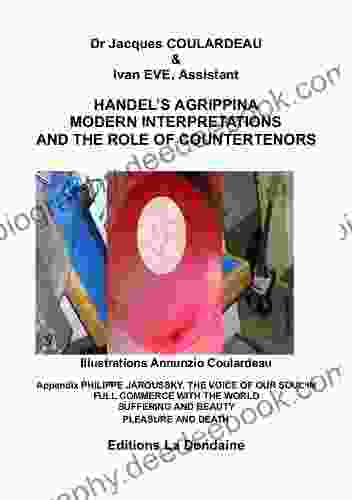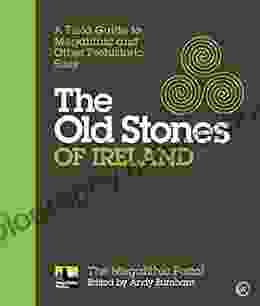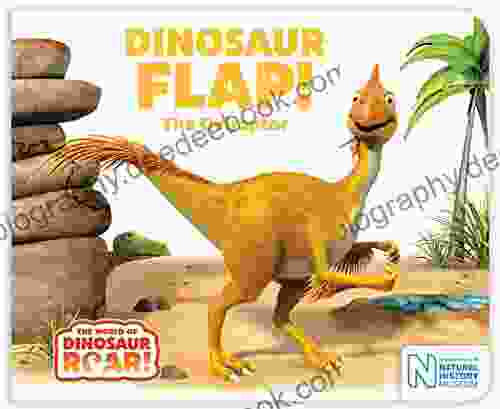Unveiling the Naeyc Code: A Comprehensive Guide for Early Childhood Educators

The National Association for the Education of Young Children (NAEYC) has established a comprehensive set of guidelines known as the NAEYC Code of Ethical Conduct. This code outlines the ethical principles and values that guide early childhood educators in their professional practice. As an educator working with young children, it is imperative to understand and adhere to the NAEYC Code to ensure ethical and responsible care. This article delves into the NAEYC Code, exploring its principles, implications, and how it fosters quality early childhood education.
Principles of the NAEYC Code
The NAEYC Code is built upon five core principles that guide the conduct of early childhood educators:
4.7 out of 5
| Language | : | English |
| File size | : | 8432 KB |
| Text-to-Speech | : | Enabled |
| Screen Reader | : | Supported |
| Enhanced typesetting | : | Enabled |
| Word Wise | : | Enabled |
| Print length | : | 154 pages |
- Respect for the Dignity and Worth of Children: Educators must value and respect each child as an individual, recognizing their rights, opinions, and cultural backgrounds.
- Respect for Families: Early childhood educators work in partnership with families to support children's development. They value family diversity and engage in respectful and collaborative relationships.
- Professionalism: Educators maintain high standards of professional conduct, demonstrating competence, integrity, and confidentiality. They engage in continuous professional development and stay updated on best practices.
- Ethical Use of Knowledge and Power: Educators use their knowledge and skills ethically and responsibly. They avoid any form of exploitation or misuse of power and prioritize the well-being of children.
- Commitment to Diversity, Equity, and Inclusion: Early childhood educators actively promote diversity, equity, and inclusion. They create inclusive and equitable learning environments that value and respect all children and families.
Implications for Early Childhood Educators
Understanding the NAEYC Code is not just about knowing the principles but also about translating them into daily practice. Here are several ways in which the Code influences the work of early childhood educators:
- Building Trusting Relationships: By respecting children and their families, educators foster trusting relationships that are crucial for effective learning and development.
- Promoting Playful Learning: The NAEYC Code emphasizes the importance of play as a vital aspect of children's development. Educators create playful environments and provide opportunities for children to explore, imagine, and discover.
- Supporting Families: Educators collaborate with families, sharing information, providing support, and respecting family values. They recognize the family as the primary source of support for children.
- Maintaining Ethical Boundaries: Adhering to the Code's principles of professionalism and ethical use of knowledge ensures that educators maintain appropriate boundaries with children and families.
- Advocating for Children: Early childhood educators have a responsibility to advocate for the rights and well-being of children. They speak up when children's needs are not being met.
Fostering Quality Early Childhood Education
The NAEYC Code serves as a roadmap for early childhood educators, guiding their professional conduct and promoting the highest quality of care for young children. By adhering to the Code, educators create safe, nurturing, and equitable learning environments that support children's holistic development.
Here are some specific examples of how the NAEYC Code contributes to quality early childhood education:
- Enhanced Child Outcomes: When educators respect children and their families, create trusting relationships, and engage in ethical practices, children demonstrate better developmental outcomes, including improved social-emotional development, cognitive abilities, and language skills.
- Positive Family Involvement: By valuing families and collaborating with them, educators promote family involvement in their children's education. This collaboration benefits children's learning and overall well-being.
- Professional Development: The emphasis on professionalism in the NAEYC Code encourages educators to engage in continuous professional development. This enhances their knowledge, skills, and competencies, leading to higher quality education.
- Ethical Decision-Making: The Code provides a framework for ethical decision-making, ensuring that educators prioritize the well-being of children and handle complex situations responsibly.
- Public Trust: Adhering to the NAEYC Code builds public trust in early childhood education. When parents and communities see that educators are committed to ethical practices, they are more likely to entrust their children to their care.
The NAEYC Code of Ethical Conduct is an indispensable tool for early childhood educators. By understanding and embracing its principles, educators lay the foundation for ethical and responsible practices. The Code guides decision-making, promotes quality early childhood education, and ultimately fosters the well-being and development of young children. As educators, it is our responsibility to uphold the Code in all aspects of our professional practice, ensuring that children receive the best possible start in life.
4.7 out of 5
| Language | : | English |
| File size | : | 8432 KB |
| Text-to-Speech | : | Enabled |
| Screen Reader | : | Supported |
| Enhanced typesetting | : | Enabled |
| Word Wise | : | Enabled |
| Print length | : | 154 pages |
Do you want to contribute by writing guest posts on this blog?
Please contact us and send us a resume of previous articles that you have written.
 Book
Book Page
Page Chapter
Chapter Story
Story Reader
Reader E-book
E-book Magazine
Magazine Newspaper
Newspaper Paragraph
Paragraph Sentence
Sentence Shelf
Shelf Bibliography
Bibliography Foreword
Foreword Preface
Preface Synopsis
Synopsis Footnote
Footnote Scroll
Scroll Codex
Codex Tome
Tome Bestseller
Bestseller Classics
Classics Library card
Library card Narrative
Narrative Biography
Biography Encyclopedia
Encyclopedia Dictionary
Dictionary Thesaurus
Thesaurus Resolution
Resolution Card Catalog
Card Catalog Research
Research Lending
Lending Reserve
Reserve Academic
Academic Special Collections
Special Collections Study Group
Study Group Storytelling
Storytelling Awards
Awards Reading List
Reading List Book Club
Book Club Textbooks
Textbooks Joe Siple
Joe Siple Christine Shreve
Christine Shreve Charles Dunn
Charles Dunn Chloe M Gooden
Chloe M Gooden Joan Didion
Joan Didion David G Hebert
David G Hebert Millie Jacobs
Millie Jacobs Heather Lehr Wagner
Heather Lehr Wagner Ralph Boryszewski
Ralph Boryszewski Kincaid A Herr
Kincaid A Herr Marnie Wooding
Marnie Wooding Linda Brendle
Linda Brendle David Herbert Donald
David Herbert Donald Sebastian Raschka
Sebastian Raschka Scott D Gottschalk
Scott D Gottschalk Chris Mcmullen
Chris Mcmullen Vika Lys
Vika Lys Julian Mannering
Julian Mannering Karl Marlantes
Karl Marlantes Lucy Rowland
Lucy Rowland
Light bulbAdvertise smarter! Our strategic ad space ensures maximum exposure. Reserve your spot today!

 Gene PowellFrommer's Seattle Day by Day: The Perfect Itinerary for Exploring the Emerald...
Gene PowellFrommer's Seattle Day by Day: The Perfect Itinerary for Exploring the Emerald...
 Henry Wadsworth LongfellowExploring the Depths of El Filibusterismo: A Masterpiece of Philippine...
Henry Wadsworth LongfellowExploring the Depths of El Filibusterismo: A Masterpiece of Philippine... Aubrey BlairFollow ·2.5k
Aubrey BlairFollow ·2.5k Ethan MitchellFollow ·2.4k
Ethan MitchellFollow ·2.4k Alan TurnerFollow ·13.2k
Alan TurnerFollow ·13.2k Mike HayesFollow ·2.8k
Mike HayesFollow ·2.8k Carter HayesFollow ·13.6k
Carter HayesFollow ·13.6k Jeffrey HayesFollow ·19.4k
Jeffrey HayesFollow ·19.4k Joseph HellerFollow ·15.5k
Joseph HellerFollow ·15.5k Leon FosterFollow ·8.1k
Leon FosterFollow ·8.1k
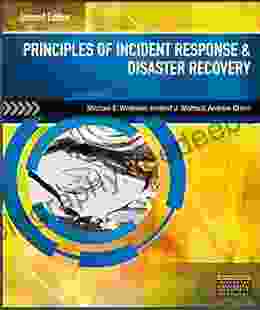
 Franklin Bell
Franklin BellSecond Edition Pdf No Audio: A Comprehensive Guide to the...
The Second Edition...
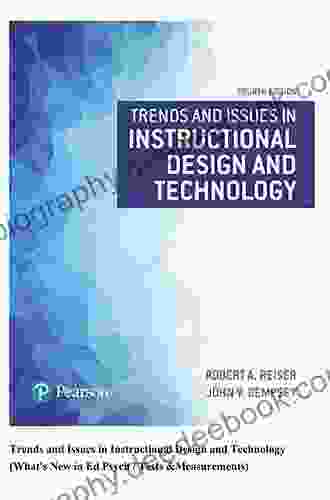
 Jackson Blair
Jackson BlairTrends and Issues in Instructional Design and Technology
Instructional...

 Mario Vargas Llosa
Mario Vargas LlosaEnchanting Enigma Variations and Triumphant Pomp and...
The Enigma Variations: A...

 Dwight Blair
Dwight BlairTime Between Us: A Novel That Explores the Power of...
Prepare to be swept away by...
4.7 out of 5
| Language | : | English |
| File size | : | 8432 KB |
| Text-to-Speech | : | Enabled |
| Screen Reader | : | Supported |
| Enhanced typesetting | : | Enabled |
| Word Wise | : | Enabled |
| Print length | : | 154 pages |


